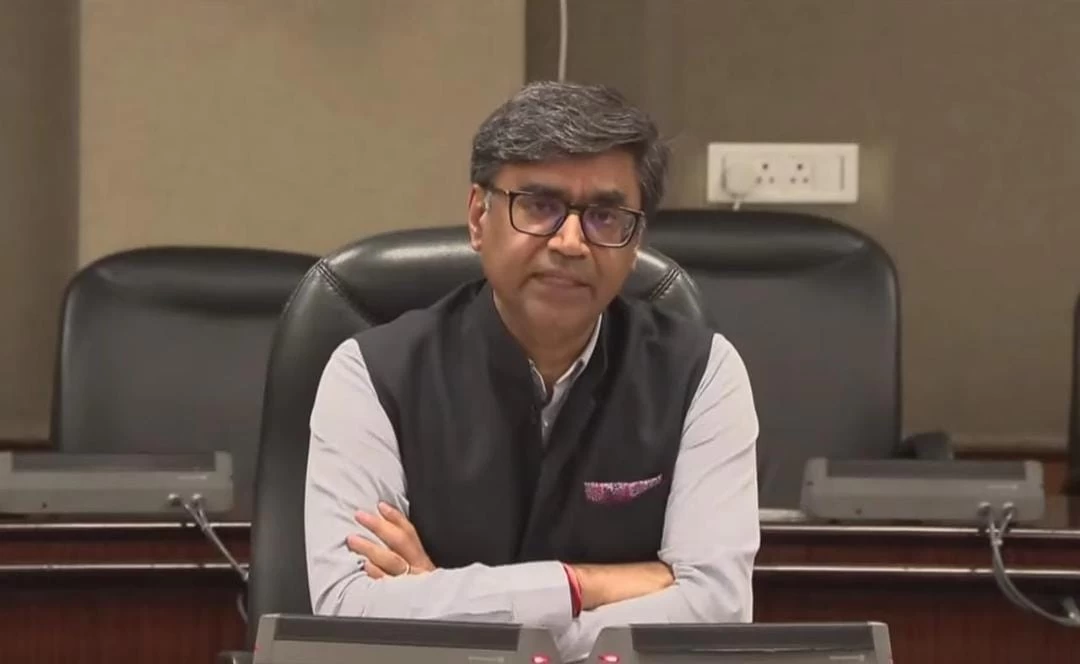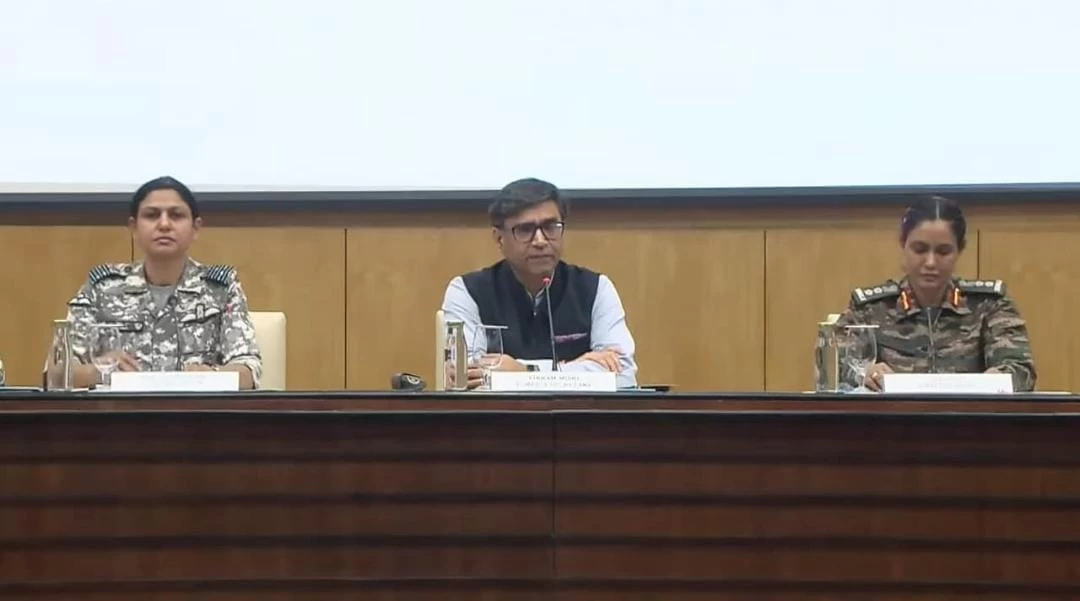Latest Updates
“Offensive Intent”: India Flags Pakistan’s Troop Movements, Armed Forces Remain on High Alert

The Ministry of Defence and Ministry of External Affairs confirmed that Pakistan was shifting its troops towards forward positions along the border, the first such large-scale build-up since the 1999 Kargil conflict. Addressing a press briefing on Saturday, officials described this mobilisation as a sign of “offensive intent” but assured that Indian forces remain fully prepared and on high alert.
The announcement came during a press briefing following Pakistan’s coordinated strikes on 26 military and civilian sites across Jammu and Kashmir, Punjab, Rajasthan, and Gujarat. In response, India launched precision strikes on six Pakistani airbases.
Addressing the media, Wing Commander Vyomika Singh and Colonel Sofiya Qureshi, described the developments as deeply concerning. “The Pakistani military has been observed to be moving their troops to border areas, indicating offensive intent to further escalate the situation,” said Colonel Qureshi. “However, the Indian armed forces remain in a high state of operational readiness and all hostile actions have been effectively countered and responded to appropriately.”
According to officials, Pakistan began its offensive, codenamed Operation Bunyan Ul Marsoos, in the early hours of Saturday. The term, taken from a Quranic verse, translates to “unbreakable wall.” The operation involved drones, long-range weapons, loitering munitions, and fighter jets targeting Indian military locations and nearby civilian infrastructure.
Among the most severe hits were airbases in Udhampur, Bhuj, Pathankot, and Bathinda. The government also confirmed that a “high-speed missile” was launched at an air base in Punjab. Earlier reports suggested that Indian forces successfully intercepted a Pakistani Fateh-2 surface-to-surface missile near Sirsa.
Pakistan’s strikes also targeted schools and hospitals near air bases in Srinagar, Awantipur, and Udhampur, actions the Indian government strongly condemned. “This once again revealed their irresponsible tendency of attacking civil infrastructure,” said Colonel Qureshi, calling the strikes “deplorable”.
India’s response came in the form of targeted precision strikes on critical Pakistani military infrastructure. The government stated that its armed forces hit command and control centres, radar installations, ammunition depots, and technical facilities across the border. “Pakistan military bases at Rafiqui, Murid, Chaklala, Rahim Yar Khan, Sukkur, and Chunian were targeted through precision ammunition and fighter jets,” the statement said. “Radar sites in Pasrur and an aviation base in Sialkot were also targeted.”
Officials emphasised that India’s operations aimed to minimise collateral damage and civilian casualties. They also reiterated India’s commitment to avoiding further escalation provided Pakistan acts with restraint.
This latest exchange follows comes as a part of the ongoing Operation Sindoor, launched by India on Wednesday in retaliation for the deadly terror attack in Pahalgam on 22 April, in which 26 civilians were killed. That operation saw Indian forces destroy nine terror camps across the border








